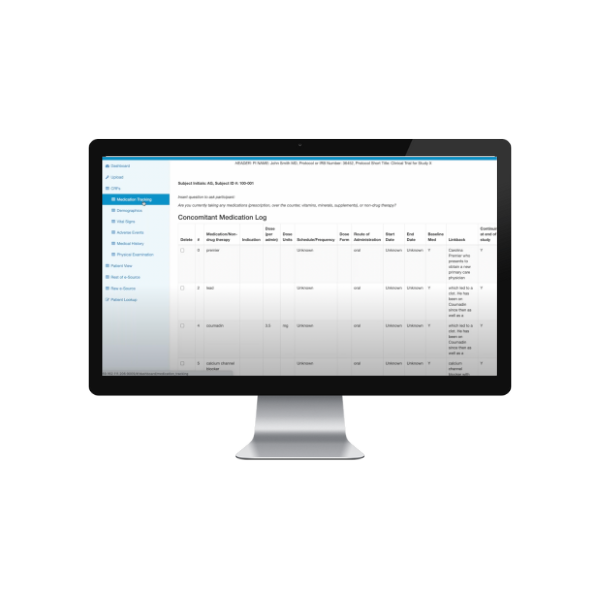EHR to EDC Connectivity with TrialKit
Capture EHR/EMR data in TrialKit with no integration required.



Clinical sites use many different EHR and EMR systems, each with unique data structures and policies.
Direct integration between these systems and an EDC often requires costly customization that does not scale across studies or sponsors. TrialKit takes a more practical approach by offering two flexible EHR to EDC solutions that allow teams to use electronic health record data in their studies without complex service engagements.
Two Ways to Use EHR or EMR Data in TrialKit

1. TrialKit Bridge: PDF-Based EHR to EDC Transfer
TrialKit Bridge makes it possible to move data from an EHR system into TrialKit eCRFs when that data is available as a PDF file.
- Works with structured or unstructured data within the PDF
- Requires that the site or sponsor make the document available to TrialKit, typically after anonymization
- No direct connection to the EHR is needed
This approach provides a secure way to capture verified clinical data directly from EHR documents, creating a compliant workflow that supports data accuracy without building a custom integration.

2. EHR Connectivity Through Apple Health
TrialKit also supports indirect EHR to EDC clinical trial integration through Apple Health, which connects to many leading EMR systems such as Cerner, Allscripts, and Athena Health.
- Participants can share authorized data from their Apple Health-connected patient portals
- Research teams can view relevant real-world health data and wearable metrics inside TrialKit
- No site-level integration or technical setup required
This method allows clinical studies to access participant-approved EHR data while supporting remote, hybrid, or decentralized trial designs.
Benefits of TrialKit EHR to EDC Solutions
TrialKit gives research teams a realistic way to work with EHR data across diverse clinical sites. Instead of building costly integrations, users can configure secure, compliant data capture workflows that adapt to each study’s needs. These EHR to EDC solutions make it easier to standardize data collection and improve overall study efficiency.
Reduce manual entry
Eliminate repetitive data transcription from EHRs.
Enhance data quality
Combine traditional EDC entries with patient-authorized data through Apple Health.
Stay flexible
Use any EHR source that can export data as a PDF.
Protect patient privacy
Built-in anonymization and HIPAA compliance.
Improve study efficiency
Create more complete participant profiles with fewer workflow interruptions.
This solution specifically addresses both the vision outlined in the 21st Century Cures Act for EHR-EDC interoperability and the US FDA’s interest in industry working together to fix this problem. It also allows us to finally step through the front door to the next frontier in research where research costs to sponsors can be dramatically reduced, time to market is improved, and patient access to new therapies is faster.
Alethea Wieland, Founder and President, Clinical Research Strategies
Ready to See How It Works?
Learn how TrialKit can help your research team securely utilize EHR data within your EDC.


